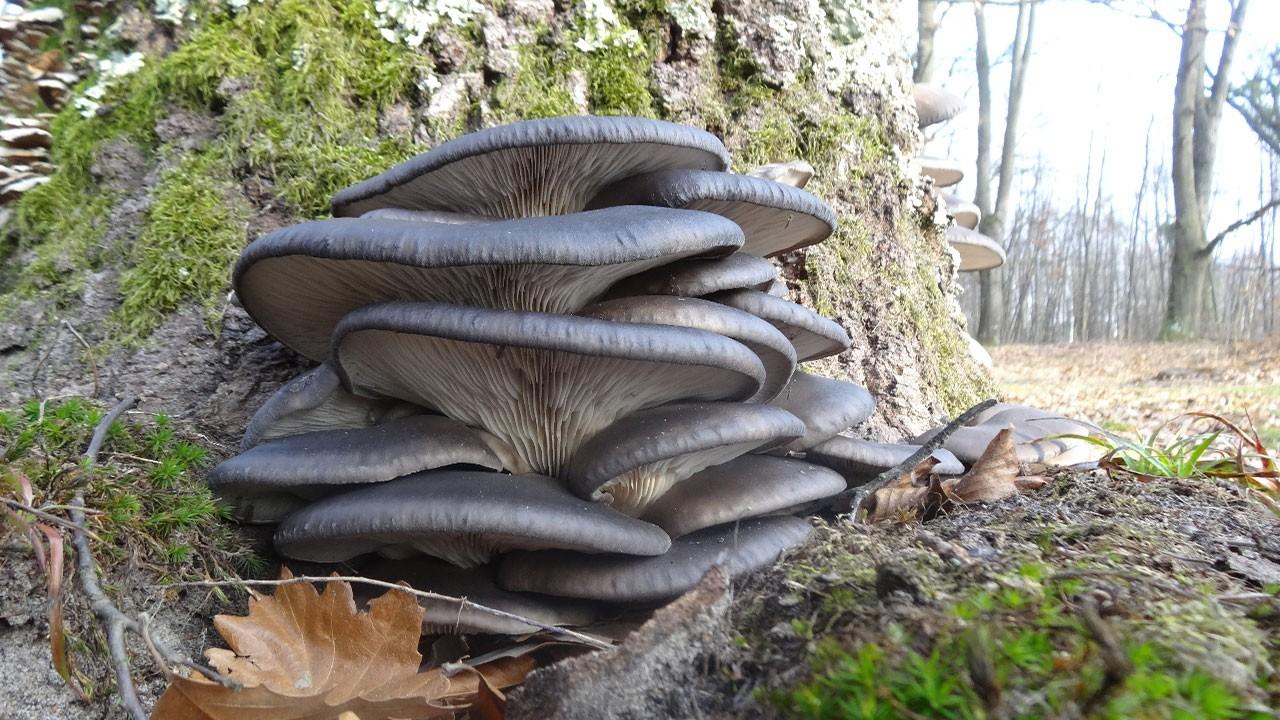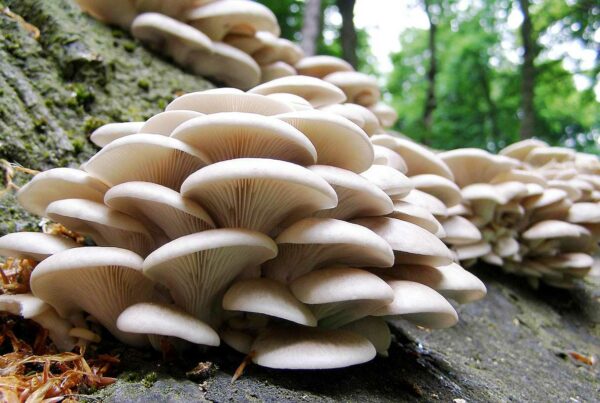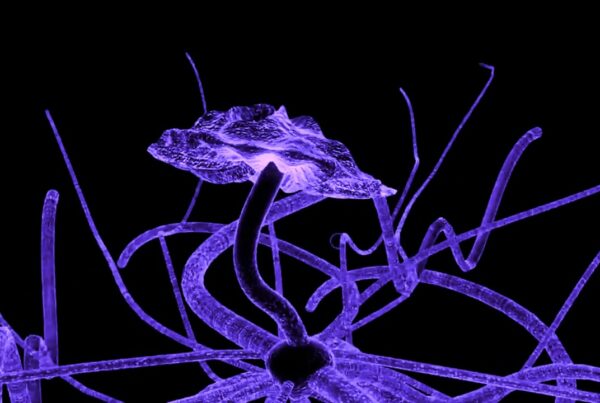Adaptogenic medicinal mushrooms are a unique group of fungi that have been used for centuries in traditional medicine. They are called adaptogens because they help the body adapt to stress, whether it be physical, emotional or environmental.
These mushrooms have a wide variety of benefits, including reducing stress and anxiety, improving cognitive function, fighting fatigue and boosting the immune system.
In this post, we will discuss the science behind 7 powerful adaptogenic mushrooms and how they can improve your health and well-being.
1. Reishi
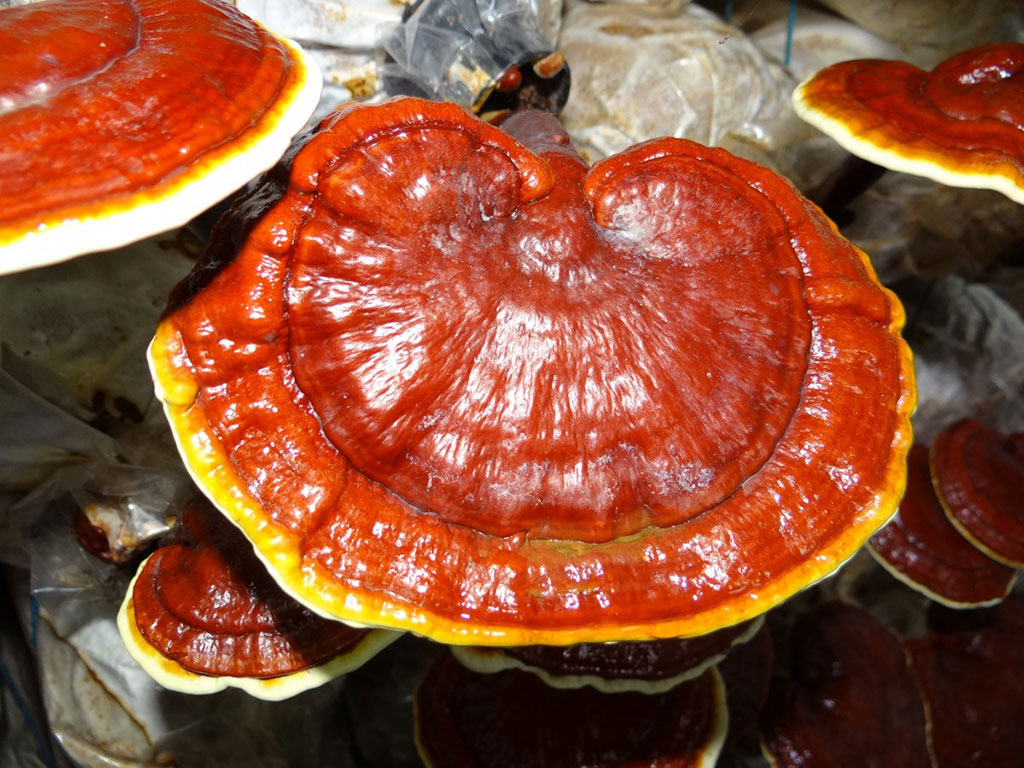
Scientific name: Ganoderma lucidum
Consumption: Medicinal tea, powder and tinctures
Reishi mushrooms are a type of adaptogenic mushroom that has been used for centuries to promote health and well-being.
These mushrooms contain compounds known as triterpenes, which help to boost the immune system and manage stress levels.
Additionally, reishi mushrooms may act as antioxidants, supporting cellular health and reducing the risk of chronic diseases.
Health Benefits of Reishi Mushrooms:
Highly adaptogenic, improves sleep, helps seasonal allergies, immune-modulatory, anti-aging, protects cellular DNA and mitochondria, reduces gut inflammation, stabilizes blood sugar, improves skin and helps digestion.
Contains ganoderic acid, which can improve oxygen flow, boost liver functionality, and reduce seasonal allergies.
Browse Scientific Studies on Reishi” PubMed
2. Lion’s Mane
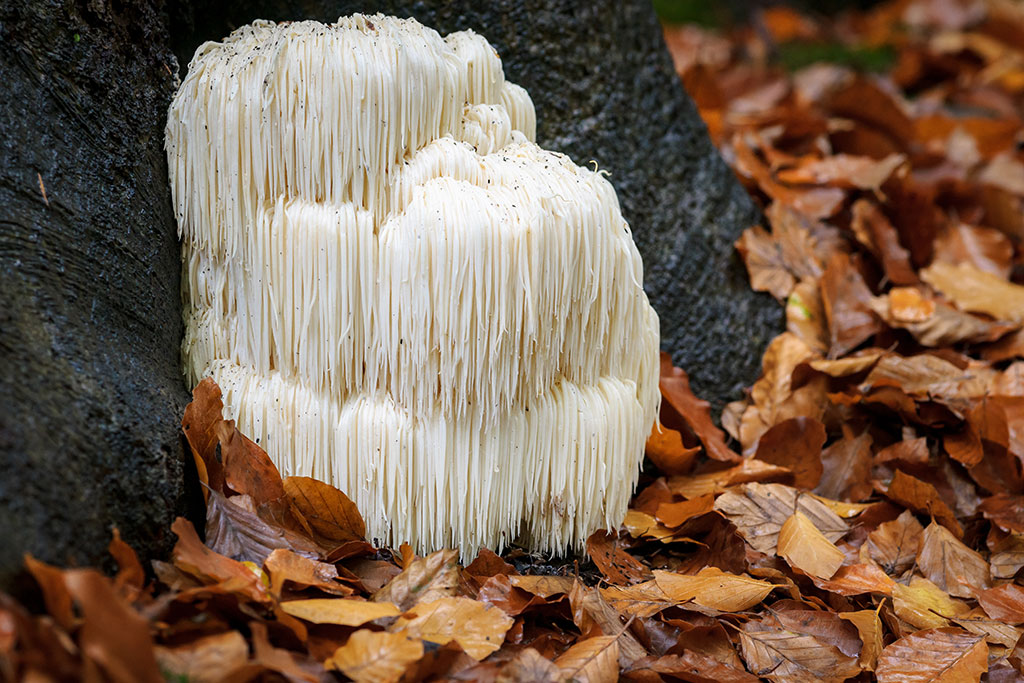
Scientific name: Hericium erinaceus
Consumption: Powder or cooked and eaten with meals
Lion’s Mane mushrooms, also known as Hericium erinaceus, are a type of edible mushroom that have been used for centuries in Traditional Chinese Medicine.
This fungi is native to North America, Europe, and Asia, and can be found growing on dead or dying trees.
The most notable feature of Lion’s Mane mushrooms is their long, beard-like strands.
Health Benefits of Lion’s Mane Mushrooms:
Boosts concentration and mood, increases neurogenesis, supports brain health, supports the immune system, and helps decrease inflammation in the body.
It increases NGF (nerve growth factor) that protect neurons and stimulate new neuronal growth. Can mitigate some of the effects of neurological disorders Parkinson’s, Alzheimer’s and Dementia.
Browse Scientific Studies on Lion’s Mane: PubMed
3. Turkey Tail
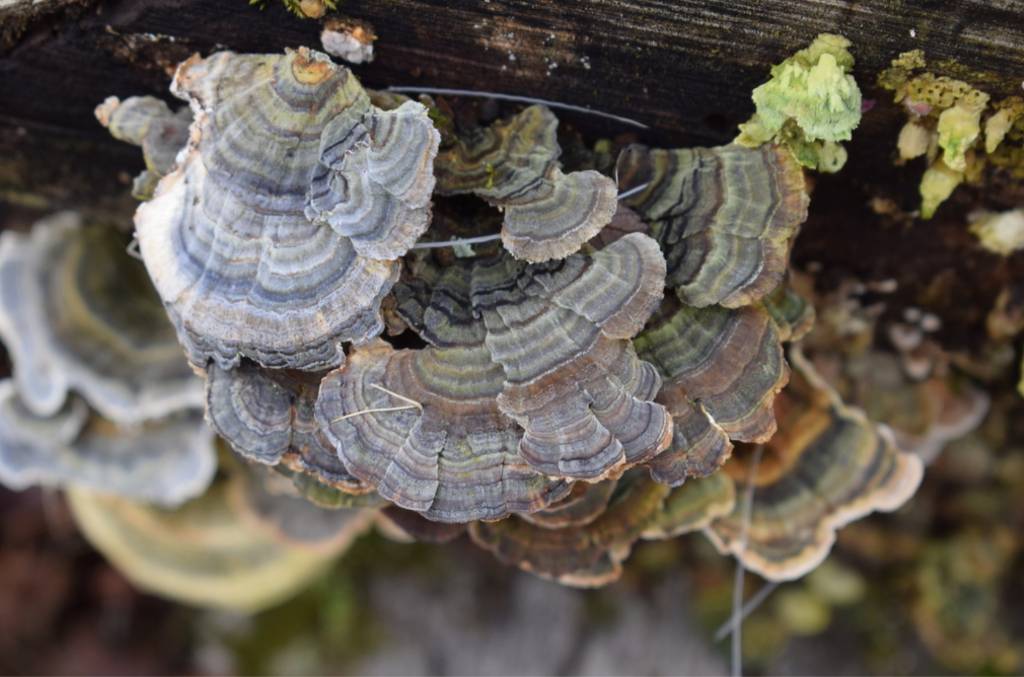
Scientific name: Trametes versicolor
Consumption: Medicinal tea, powder and tinctures
Turkey tail mushrooms are a type of fungi that typically grow on decaying wood.
These mushrooms are known for their medicinal properties and have been used in traditional Chinese medicine for centuries.
Turkey tail mushrooms are rich in polysaccharides and other antioxidants, which make them valuable for boosting immunity and fighting the growth of cancer tumours.
Health Benefits of Turkey Tail Mushrooms:
Treats the common cold, flu and infections, aids digestion, immuno-modulatory, anti-tumour properties.
Two unique beta-glucans polysaccharide krestin (PSK) and polysaccharide peptide (PSP) are remarkable for their anti-cancer properties and ability to regenerate white blood cells and ward off pathogens.
Browse Scientific Studies on Turkey Tail: PubMed
4. Shiitake
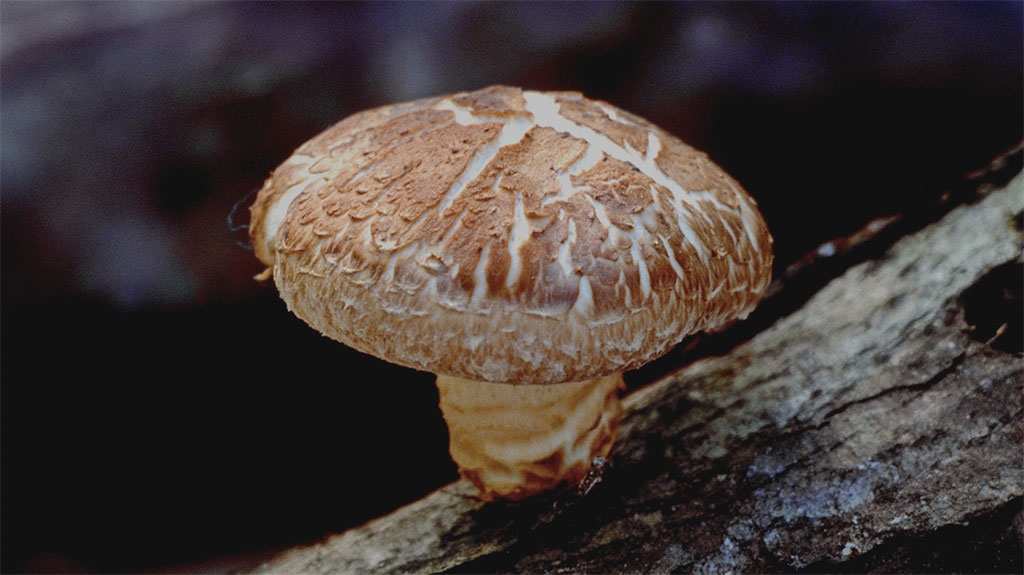
Scientific name: Lentinula edodes
Consumption: Powder or cooked and eaten with meals
Shiitake mushrooms are a type of edible fungus that are widely used in cooking around the world.
These mushrooms have a rich, earthy flavor and can be prepared in a variety of ways, from sautéing to roasting.
They are also known for their many health benefits, including high levels of antioxidants and protein.
Health Benefits of Shiitake Mushrooms:
For over 2000 years it has been used in China to treat and prevent upper respiratory diseases, improve circulation, increase energy, decrease fatigue and as a general chi enhancing elixir. Anti-inflammatory and full of vital minerals.
Sun-dried shiitake enhances flavour and hyper-concentrates vitamin D2 up to 100x. Also high in B Vitamins.
Browse Scientific Studies on Shittake: PubMed
5. Oyster Mushrooms
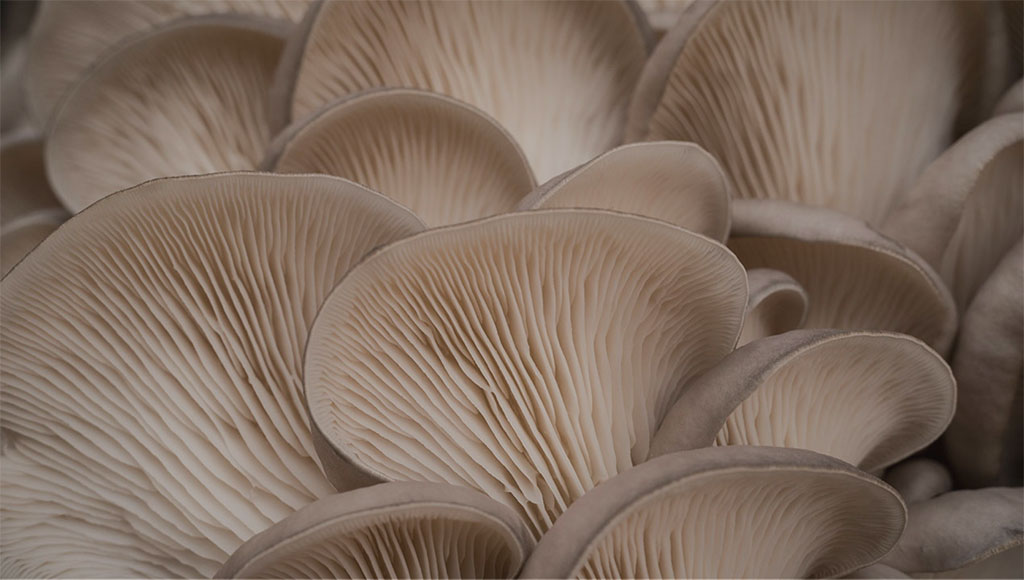
Scientific name: Pleurotus ostreatus
Consumption: Cooked and eaten with meals
Oyster mushrooms are a type of edible mushroom that is typically oyster-shaped and found in a variety of colors.
They have a mildly sweet taste and are commonly used in Asian cuisine. They are an excellent source of vitamins and minerals, and have been shown to have some medicinal properties.
Health Benefits of Oyster Mushrooms:
High in protein, fibre, iron, zinc, vitamin D and B Vitamins. Anti-oxidant, anti-inflammatory, lowers cholesterol levels and can boost brain health.
Doesn’t travel well, best to grow them yourself. Great reputation as the easiest to cultivate, richly nutritious and medicinally supportive to your body.
Browse Scientific Studies on Oyster Mushrooms: PubMed
6. Cordyceps
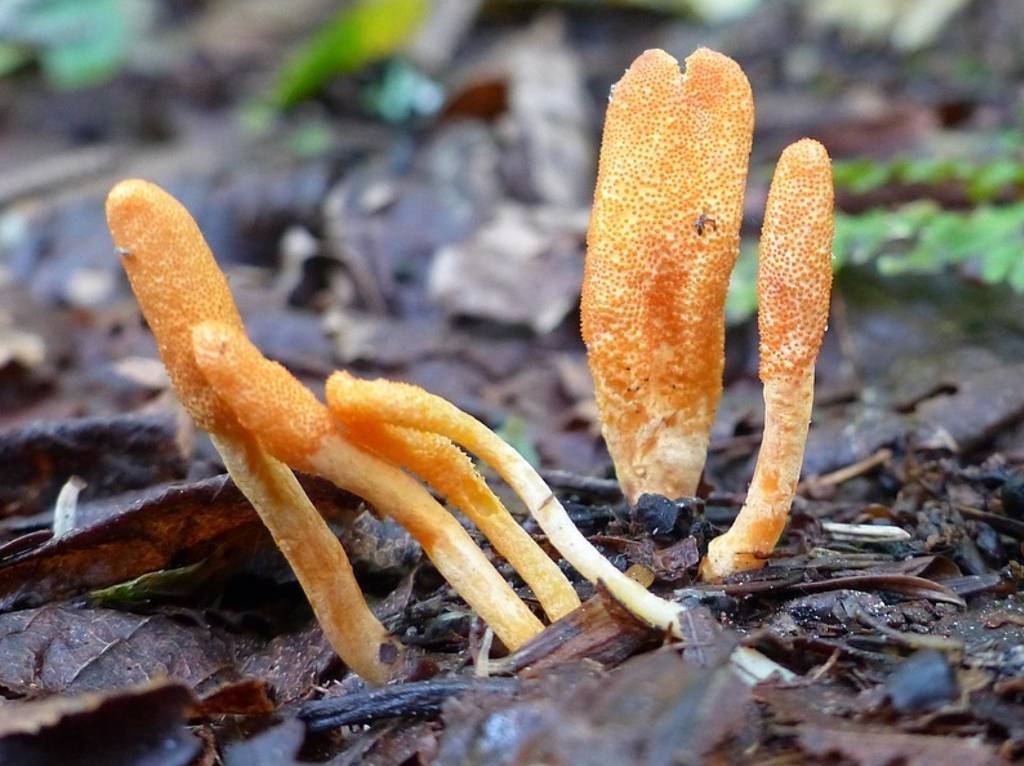
Scientific name: Cordyceps militaris
Consumption: Powder or as a supplement
Cordyceps mushrooms are a type of medicinal mushroom that has been used in Traditional Chinese Medicine for centuries.
Cordyceps have a wide range of purported health benefits, including Boosting energy levels, aiding in exercise performance, and helping to fight fatigue. They are also said to improve immune system function and libido.
Health Benefits of Cordyceps Mushrooms:
Strengthens the heart and blood vessels. Helps athletes perform better by increasing energy and reducing fatigue. Renowned as a potent aphrodisiac.
Lung and kidney tonic in traditional Chinese medicine. The beta-glucans help deliver more oxygen on a cellular level and increase ATP.
Browse Scientific Studies on Cordyceps: PubMed
7. Chaga
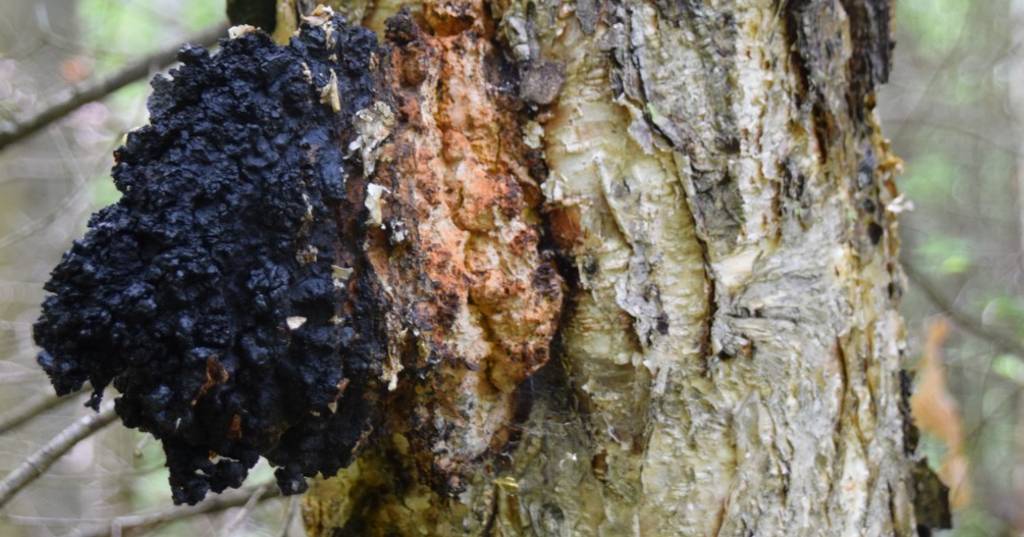
Scientific name: Inonotus obliquus
Consumption: Powder or kernels boiled in tea
Chaga is a type of fungus that grows mainly on birch trees in northern forests. It is dark brown or black in color, and has a rough, cork-like texture.
Chaga is sometimes called “black gold” because of its high nutritional value and it is rich in vitamins, minerals, and antioxidants.
Chaga has been used for centuries in traditional medicine. It is said to boost the immune system, fight cancer, and improve digestion. Chaga is also used as a natural dye for fabrics and yarns.
Health Benefits of Chaga Mushrooms:
Highly antioxidant, anti-bacterial, anti-viral, anti-inflammatory and has strong adaptogenic properties.
Betulin helps in the treatment of cancers and it also has mild blood sugar lowering effect. Chaga is a legendary remedy for warding off the common cold, improving the health of the hair and skin.
Browse Scientific Studies on Chaga: PubMed
Download Our Guide To 5 Easy To Identify Medicinal Mushrooms
Want to start identifying the mushrooms you discover in the forest?
Get our free guide to identifying medicinal mushrooms and how to catalog them using your smartphone so you can develop your pattern recognition skills.
- Reconnect To Your Original Nature Through Awe And Wonder - April 17, 2024
- Pasqueflower: A Spring Wildflower That Symbolizes Rebirth - April 5, 2024
- Deep Embodiment And The Flow of Embodied Awareness - April 1, 2024
